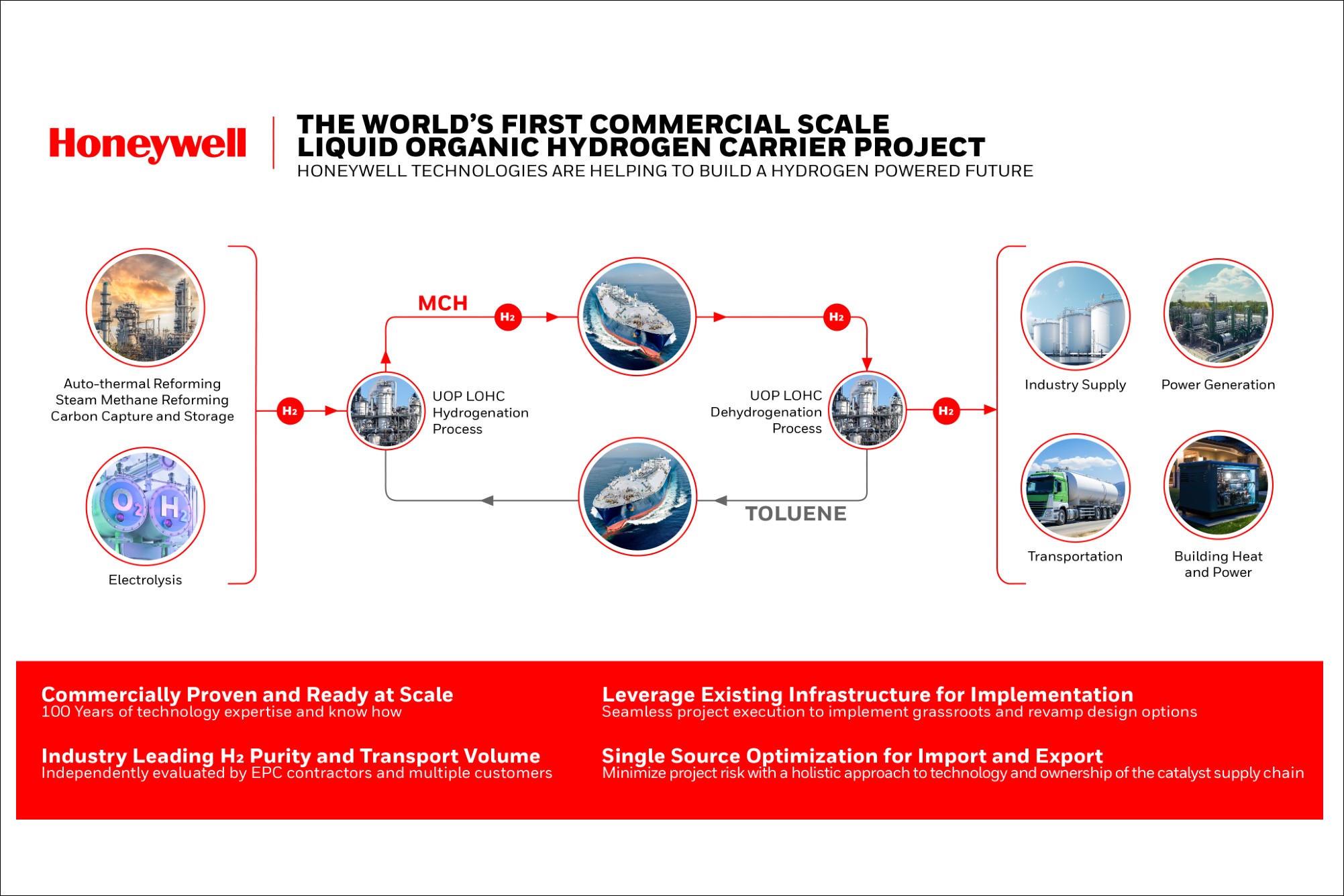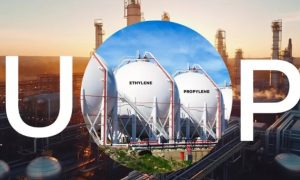This is one of several hydrogen transportation projects on which Honeywell and ENEOS collaborate. In the Honeywell LOHC solution, hydrogen gas is combined chemically through the Honeywell Toluene Hydrogenation process.
Honeywell imposed that ENEOS, a leading energy company in Japan, will develop the world’s first commercial scale Liquid Organic Hydrogen Carrier (LOHC) project using Honeywell’s solution at multiple sites.
The LOHC technology enables long-distance transportation of clean hydrogen and can assist address the growing demand for hydrogen in a variety of industries by leveraging existing refining assets and infrastructure. The project helps Honeywell combines its portfolio with three compelling megatrends: automation, the future of aviation, and the energy shift.
“With more cost-effective long-distance transport, our Liquid Organic Hydrogen Carrier provides a method of more closely matching international supply and demand for hydrogen, which enables hydrogen to play a critical role in the energy mix as we move toward lower-carbon economies,” said Ken West, president and CEO of Honeywell Energy and Sustainability Solutions. “By providing solutions to help overcome the challenges of hydrogen transportation, Honeywell is supporting ENEOS in transitioning to a hydrogen-powered future.”
This is one of several hydrogen transportation projects on which Honeywell and ENEOS collaborate. In the Honeywell LOHC solution, hydrogen gas is combined chemically through the Honeywell Toluene Hydrogenation process into methylcyclohexane (MCH) – a convenient liquid carrier – compatible with existing infrastructure. The hydrogen at these sites will be exported – in the same way as petrochemical products – to ENEOS in Japan in the form of MCH. Once at its destination, the Honeywell MCH Dehydrogenation process will recover the hydrogen and release it for use, while the toluene can be returned for future cycles.
Hydrogen is projected to play a significant role in lowering greenhouse gas emissions. Under ordinary conditions, hydrogen is a combustible gas with a low density that cannot be transported efficiently or easily. Liquifying hydrogen and employing chemical carriers such as ammonia are two options for transporting hydrogen, both of which necessitate additional infrastructure for production and transportation.
Cookie Consent
We use cookies to personalize your experience. By continuing to visit this website you agree to our Terms & Conditions, Privacy Policy and Cookie Policy.















